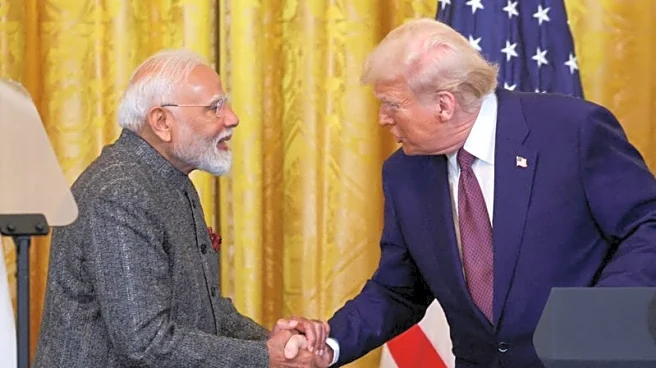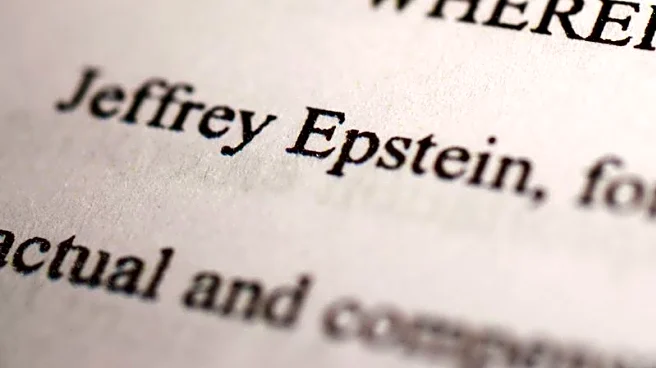What's Happening?
President Donald Trump's administration has announced new sanctions targeting Russia's largest oil companies, Rosneft and Lukoil, in an effort to pressure Russia into negotiating a peace deal over Ukraine. The sanctions were revealed during a media briefing
at the White House, where Trump expressed frustration with Russia's continued aggression in Ukraine. The sanctions aim to cut off significant revenue streams for Russia, which has been accused of launching large-scale aerial attacks on Ukrainian cities, including Kyiv. Ukrainian officials have welcomed the sanctions, viewing them as a clear signal against prolonging the conflict.
Why It's Important?
The sanctions imposed by President Trump are significant as they target major players in the global oil market, potentially affecting energy prices and supply chains worldwide. By pressuring Russia economically, the U.S. hopes to influence Moscow's stance on the conflict in Ukraine. The move also aligns with broader international efforts, as the European Union has similarly adopted sanctions against Russian energy profits. However, the effectiveness of these measures in achieving a peace deal remains uncertain, with skepticism from Ukrainian lawmakers about Russia's willingness to negotiate. The sanctions could also strain U.S.-Russia relations further, as indicated by Russian officials labeling them as an 'act of war.'
What's Next?
The sanctions may lead to shifts in global oil trade, with Russia likely seeking alternative markets in Asia, particularly China and India. The U.S. administration has indicated that further actions could be taken if Russia does not engage in serious peace negotiations. Meanwhile, Ukraine continues to seek military support from the U.S., including long-range missiles, though recent discussions have not resulted in new commitments. The geopolitical landscape may see increased tensions as countries navigate the implications of these sanctions on their energy policies and diplomatic relations.
Beyond the Headlines
The sanctions highlight the complex interplay between economic measures and military strategies in international conflicts. While they serve as a tool to exert pressure, their success depends on the broader geopolitical context and the willingness of involved parties to compromise. The situation underscores the challenges in balancing economic interests with ethical considerations in foreign policy, as nations grapple with the consequences of prolonged conflicts.

















